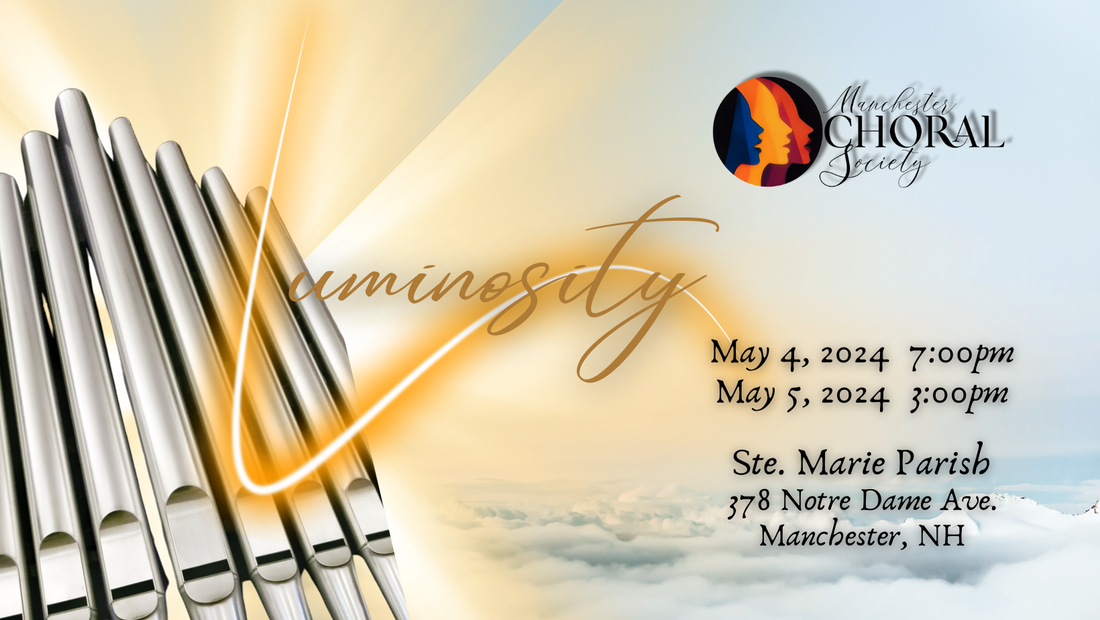Click here to buy tickets
|
Program Advertisement
Thank you for your support!
Please select the desired advertisement size and submit payment securely through PayPal below. Send the artwork and form to [email protected] Click HERE to complete this form, download and print. Please use the drop down box below to select and purchase your ad size.
All of us Sponsorship
Thank you for your generosity and support!
Charles and Judith Blood David and Johanna Publow Fund for Music Ann and Richard Thorner, Blanche A. Bruce Trust Sponsorships Charlie Blood, Collaborative Pianist Sasha Kuftinec and Mark Schwartzberg Johanna K. Publow William Fletcher, Tanpura MCS Bass Section Rob St. Cyr, Organ Maria Di Nola Dan Wells Virginia Seng Justin Ouellette, Viola MCS Alto Section Beth Trott In Memoriam Sasha Kuftinec and Mark Schwartzberg for Dubravko Kuftinec Dan Wells, in loving memory of Charles E. Duke and Dr. Roger G. Wells Singer Sponsorships Marica Adams for Dick and Debbie Leavitt |
SOCIAL FEEDManchester Choral Society is supported in part by a grant from the New Hampshire State Council on the Arts & the National Endowment for the Arts.
|




